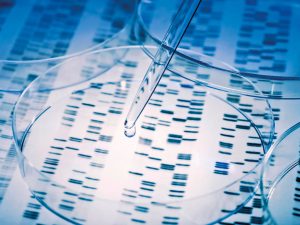When a cancer patient still only has limited response after multiple chemotherapy treatments, the sense of despair can be crushing. Terence Chuen Wai Poon, associate professor in the Faculty of Health Sciences (FHS) at the University of Macau (UM), suggests that in such circumstances, precision medicine—enabled by machine learning and big data analytics—can serve as a compelling alternative to conventional therapies.
Harnessing Multifaceted Health Data
According to Prof Poon, precision medicine is an emerging clinical and research field that is gaining prominence in diagnosis and treatment of disease. Beyond routine check-ups, clinicians may examine patients’ genetic profiles to discern how polymorphism/mutations affect disease formation. They may also delve into other ‘biomarkers’—such as proteins and metabolites—to get a clearer picture of the patient’s health. By integrating these data, clinicians are better placed to identify disease subtypes, thus enabling more tailored treatment plans.
‘Machine learning and big data analytics play important roles in precision medicine. They are particularly adept at pinpointing biomarkers with remarkable accuracy. This enables us to have a deeper understanding of complex diseases like cancer and diabetes,’ explains Prof Poon. His research applies artificial intelligence for tasks like biomarker discovery, patient classification and disease monitoring. He has also been developing various high-throughput analytical technologies that allow swift and large-scale analyses of biological specimens such as blood and tissue.
Growing Demand for Precision Medicine
With the increasing demand for personalised healthcare and the active development of the health industry in Macao in recent years, there is a growing demand for precision medicine professionals in many fields, from academia and clinical settings to the pharmaceutical and biotechnology industries. Against this backdrop, many students have chosen the Precision Medicine specialisation under the university’s Master of Science in Data Science programme, jointly offered by UM’s Institute of Collaborative Innovation and FHS.
‘This specialisation equips students with a diverse skill set, from data analytics to biomedical sciences, preparing them to tackle a variety of healthcare challenges towards achieving precision medicine,’ says Prof Poon, who also serves as the coordinator of the specialisation. Before graduation, students are required to pursue a research project to solve a practical data science problem in the field of biomedical sciences, medicine, or healthcare.
According to Prof Poon, students of the precision medicine specialisation conduct research using large datasets from academia, hospitals, and industries. Recent projects have ranged from solving fundamental biological questions related to life, disease modelling, understanding of disease pathogenesis, drug development and applications of AI in medicine. ‘With expertise in data science and biomedical sciences, our graduates have the ability to contribute to society with more personalised healthcare solutions,’ Prof Poon concludes.
Chinese & English Text / Davis Ip
Photo / Editorial Board
Source: UMagazine ISSUE 28
Related articles:
- Improving Society Through Data Science
- Applying AI in Novel Ways
- Marketing to Minds With Data
- Extracting Financial Value From Big Data
- Building Trust Through Data Compliance
- Developing a Common Language for Humans and Machines
- Data Science Driving Personalised Education
- Leveraging Data to Enhance Public Services


